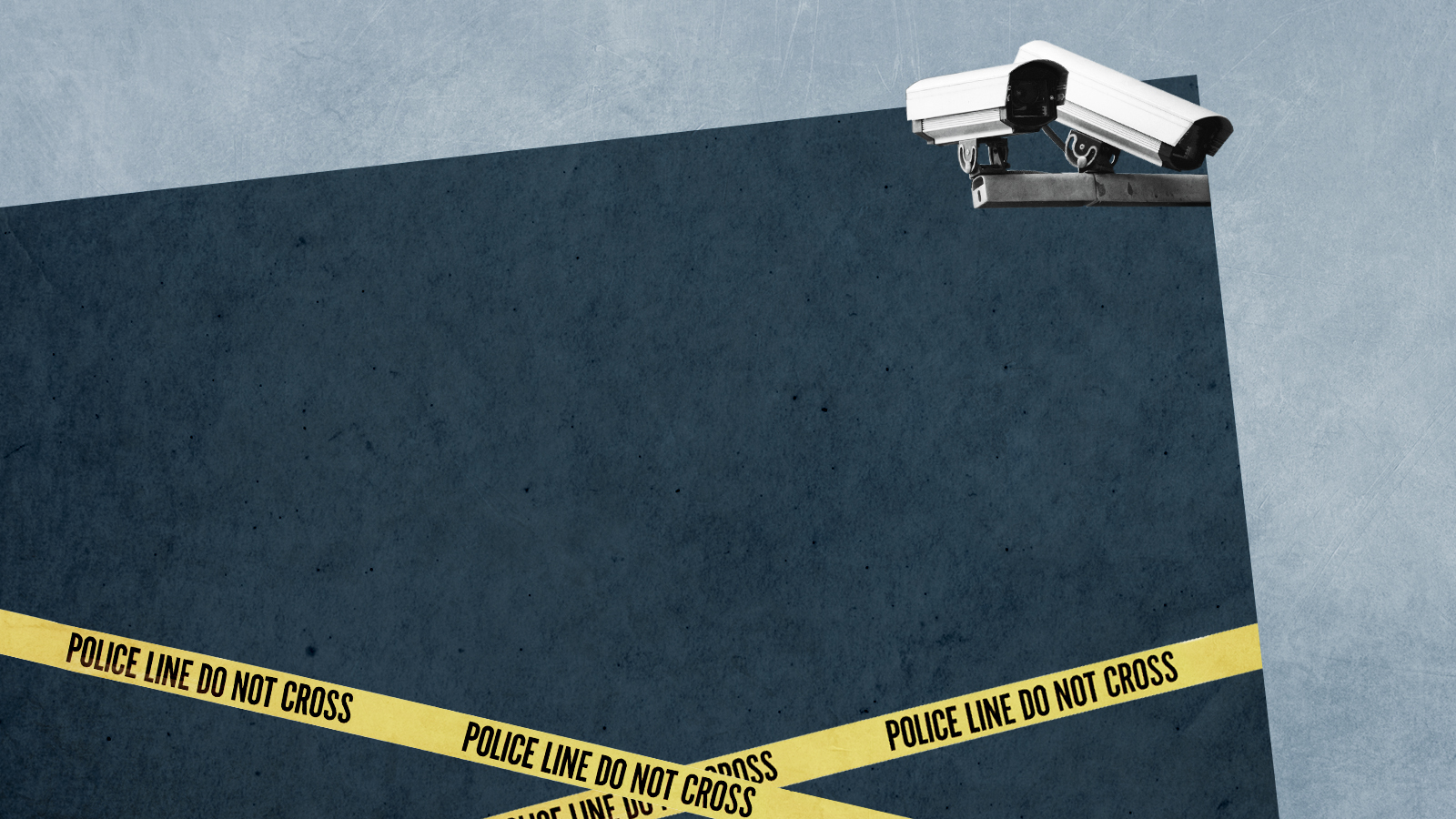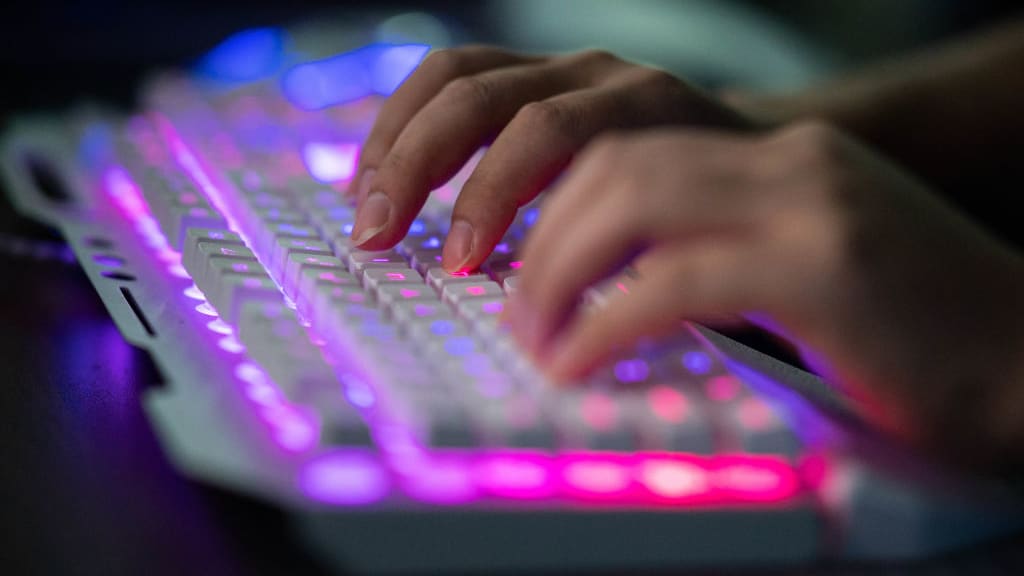The Brooklyn subway attack shows the surveillance state won't save you
We’ve given up our privacy, so where’s the safety we were promised?


A free daily email with the biggest news stories of the day – and the best features from TheWeek.com
You are now subscribed
Your newsletter sign-up was successful
Several years ago, two New York Police Department detectives knocked on my apartment door and asked if they could have my landlord's phone number so they could review our building's surveillance camera footage for an investigation. In the ensuing back-and-forth with my landlord's son I learned the cameras, which I'd naively assumed could be used to catch a package thief if I ever lost something of value in my building's vestibule, were not even plugged in.
America's video surveillance apparatus has been described as being "on par with" China's, with one installed camera for every 4.6 people in 2019. Under the watchful eyes of New York City's 15,000-plus lenses, especially, "you are never anonymous," one AI researcher told Wired. But in actuality, the cameras have been proven to do very little to stop or deter crime — even as they require an enormous sacrifice of privacy from the public.
On Tuesday, for example, in the chaotic aftermath of the Brooklyn subway shooting, with the suspected gunman then-unidentified and still on the lam, Mayor Eric Adams admitted that at this "particular station there appeared to have been some form of malfunction with the camera system," and the footage, apparently, could not be used. Sources added to CBS2 that "the cameras at the two subway stops on either side of the 36th Street station [where the attack took place] — 45th Street and 25th Street — also had the same connectivity problem," failing to transmit footage to the NYPD.
The Week
Escape your echo chamber. Get the facts behind the news, plus analysis from multiple perspectives.

Sign up for The Week's Free Newsletters
From our morning news briefing to a weekly Good News Newsletter, get the best of The Week delivered directly to your inbox.
From our morning news briefing to a weekly Good News Newsletter, get the best of The Week delivered directly to your inbox.
Some sort of foul play is being investigated, naturally, though that's not to entirely rule out the possibility of plain old incompetence: A 2018 audit of the MTA's cameras found that 31 percent of the expected maintenance visits for a sample of 223 cameras "were simply not done," according to CBS. (Other transit authorities are even worse; until recently, the Bay Area's BART largely relied on decoy cameras.) But while some will likely use this opportunity to claim we need even more functional surveillance!, the same way fearmongers will use the attack to call for more police officers, the opposite is true. Our already highly surveilled urban existence — just like our heavily policed one — ultimately did nothing to prevent Tuesday's tragedy.
Surveillance might seem harmless enough since it's so normalized; we're unthinkingly captured on camera dozens of times per day, not even noticing anymore the lenses trained on us as we walk into department stores or enter our own apartment buildings. It's easy, then, to shrug off concerns on the assumption that the cameras are effective in deterring criminals or otherwise fighting crime — though there's extremely limited evidence they actually do either of those things. As just one example, 90 percent of the two-block stretch from Eighth Avenue to Sixth Avenue through Times Square in New York City is covered by cameras with facial recognition capabilities, which did nothing to deter a shooting in broad daylight that took place there last year (it didn't exactly require facial recognition AI to identify the suspect, either; the gunman was shooting at his brother).
The downsides to our surveillance state, on the other hand, are massive: The ACLU lists sweeping concerns ranging from "voyeurism" ("operators frequently use the cameras to voyeuristically spy on women") to well-documented discriminatory targeting, to "real dangers of abuse and 'mission creep,'" including the NYPD's freaky use of facial recognition technology. That's not to mention that to actually maintain a working surveillance system — Britain's apparatus, for comparison, "sucks up approximately 20 percent of that nation's criminal justice budget," the ACLU writes — is exceedingly costly, and burns through money that might otherwise go toward preventing situations that create crime in the first place (such as expanding mental health and drug abuse resources, social services, or building and maintaining affordable housing).
Tuesday's attack will understandably make a lot of New Yorkers feel less safe in their city (though the attacker has since been caught). But beware of security theater: Adams has already promised to double the number of bored police officers standing around in the subways and to "examine the other stations because the camera system is an important part of our anti-violence and terrorist operation." Yet neither of these things will actually make New Yorkers any safer; indeed, despite rivaling China for cameras-per-person, the apparatus has glaringly failed us more than once.
A free daily email with the biggest news stories of the day – and the best features from TheWeek.com
We should think twice, then, about our complacency with omnipresent surveillance — because whatever angle you look at it, it just isn't worth the cost.
Jeva Lange was the executive editor at TheWeek.com. She formerly served as The Week's deputy editor and culture critic. She is also a contributor to Screen Slate, and her writing has appeared in The New York Daily News, The Awl, Vice, and Gothamist, among other publications. Jeva lives in New York City. Follow her on Twitter.
-
 Bad Bunny’s Super Bowl: A win for unity
Bad Bunny’s Super Bowl: A win for unityFeature The global superstar's halftime show was a celebration for everyone to enjoy
-
 Book reviews: ‘Bonfire of the Murdochs’ and ‘The Typewriter and the Guillotine’
Book reviews: ‘Bonfire of the Murdochs’ and ‘The Typewriter and the Guillotine’Feature New insights into the Murdoch family’s turmoil and a renowned journalist’s time in pre-World War II Paris
-
 Witkoff and Kushner tackle Ukraine, Iran in Geneva
Witkoff and Kushner tackle Ukraine, Iran in GenevaSpeed Read Steve Witkoff and Jared Kushner held negotiations aimed at securing a nuclear deal with Iran and an end to Russia’s war in Ukraine

